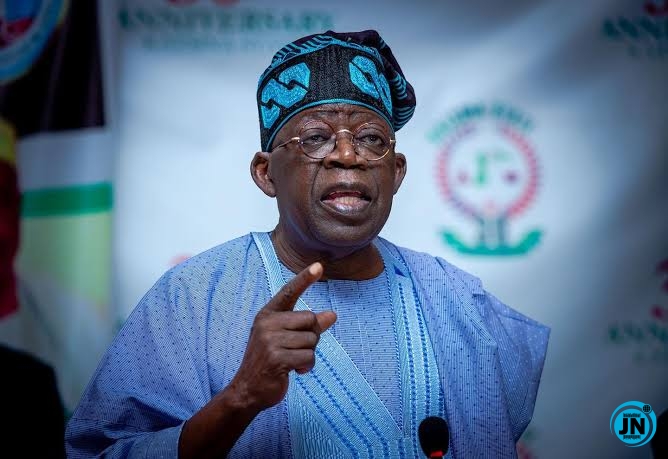President Bola Tinubu has disclosed that, over the past three months, his administration has successfully met Nigeria’s financial obligations without relying on remittances from the Nigerian National Petroleum Company Limited (NNPCL) or utilizing the Central Bank of Nigeria’s (CBN) Ways and Means financing. This revelation underscores a shift from the financial practices of previous administrations, highlighting Tinubu's commitment to innovative governance and financial discipline.
Speaking during a media chat held on Monday night at his Bourdillon residence in Ikoyi, Lagos, the President expressed satisfaction with his administration’s performance. He emphasized the importance of self-evaluation in leadership and used the opportunity to highlight the achievements of his government in managing the nation’s finances innovatively and transparently.
“Push me to my brag mode,” Tinubu said cheerfully. “In the last three months, I’ve not taken a penny from NNPC before meeting my obligations. To me, that is excellent.” This statement reflects his administration’s ability to break away from past dependency on petroleum revenue and adopt new strategies for meeting financial commitments.

When asked about his self-assessment, the President confidently responded, “Why not? Will you score me? If I do my homework right, I should grade myself.” His remarks indicate a leader confident in his administration’s approach to governance and economic management.
During the media chat, President Tinubu also reiterated his administration’s unwavering commitment to combating corruption at all levels. He linked the fight against corruption to addressing the root causes, which he identified as poor living conditions, lack of funds, and inadequate access to essential services like education.
“Corruption in all ramifications is bad for the people,” Tinubu stated. “But first, pay attention to the causes. Why are people corrupt? Lack of social amenities, lack of funds, their children’s education…” He emphasized that combating corruption requires a comprehensive approach, including improving living conditions and providing adequate social support for citizens.
One of the key measures he cited was the recent increase in the national minimum wage, which his administration raised from ₦35,000 to ₦70,000. Tinubu described this move as an essential anti-corruption strategy. “There are many anti-corruption mechanisms we can put in place to help people avoid corruption. Paying them good and living wages is one of them. I increased the minimum wage from ₦35,000 to ₦70,000; to me, that’s anti-corruption,” he added.
The President further highlighted the importance of transparency and accountability in governance. He revealed that his administration has increased funding for state and local governments while ensuring that the government’s revenue is openly disclosed to the public. This transparency, he explained, is part of the broader effort to rebuild trust between the government and the people.
While acknowledging that corruption cannot be entirely eradicated, Tinubu stressed the need to minimize it significantly by addressing citizens’ basic needs. “It’s very difficult to say you’ll eliminate corruption completely, but you can reduce it to the barest minimum by addressing the people’s needs,” he concluded.
President Tinubu’s remarks have sparked discussions about the effectiveness of his government’s financial and anti-corruption strategies. Supporters have praised his commitment to transparency, financial discipline, and his efforts to improve the living standards of Nigerians. Critics, however, have called for more detailed explanations of the alternative revenue sources his administration has employed to meet its obligations.
As Nigerians continue to evaluate the impact of Tinubu’s policies, his administration’s emphasis on innovation, transparency, and addressing root causes of corruption remains a focal point in the discourse on governance and economic management in the country.

